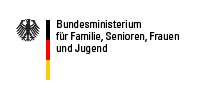AID:A-Competence Team: Children
The Competence Team Children investigates conditions and processes of children growing up in the developmental phase from birth to the transition to early adolescence (up to under 12 years of age resp. after the transition to lower secondary school). The focus lies on the design of socialization and educational processes in the context of changing conditions. We consider children as active actors in their environment. Within their interrelated environments, they open up possibilities for action and acquire competencies.
Against the background of this theoretical conception, the Competence Team Children currently focuses on specific topics:
Our theoretical framing in this topic utilizes approaches of needs to the well-being of children (e.g., Deci/Ryan 2008). Three basic dimensions form the core of these conceptual considerations of well-being: social inclusion, perceived autonomy, and competence. In addition to this subjective experience of well-being, the following areas, among others, are examined as objective framework conditions in analogy to UNICEF approaches: Material security, health, education, housing conditions, regional disparities.
By conceptually linking the subjective and objective factors of well-being, possible impairments of well-being in individual areas of life can be distinctively delineated. Possible compensatory effects, as well as the relationship between (changes in) family relationships, everyday family life, and well-being, can be examined.
Additionally, we consider socialization contexts such as non-familial care settings (in early, middle, and late childhood) as well as leisure time and peers (Alt, etc. 2018). As in the two previous waves of AID:A, care settings of early childhood as well as settings in middle and late childhood are at the center of the analyses. A new aspect of AID:A 2019 is the possibility of capturing information on (future) care needs in the primary school sector and carrying out further analyses in this area. Leisure time and relationships with peers and friends are also of great interest as important socialization contexts from childhood to adolescence. The data provide information on autonomy and competence experiences and independence from earliest childhood to adolescence and beyond and illustrate the active role of children as acting subjects.
Within this topic, the family is considered as the first learning environment in which children can learn and test new behaviors and thus expand their competencies (Foster et al. 2005). Here, the analyses will focus on the description of objective circumstances like the economic situation of the family. Additionally, social (e.g., family relationships) and cultural (e.g., education, media) aspects will be examined more closely about their impact on the development of children's competencies. In doing so, the following questions are examined:
How do parents support their children in their educational biography?
What social disparities exist in the design of the familial learning environment (e.g., education, media)?
What influence does the family have (e.g., capital resources, educational aspiration, educational behavior) on the personality traits of the child, her / his motivation to learn, and his / her school self-concept?
The use of digital media has become an integral part of everyday education (Livingstone et al. 2017). AID:A 2019 assesses the role of digital media in the lives of parents and their children. These new data can be used to take a closer look at the media education behavior of parents in particular, as well as the media use of parents and children. Additionally, the analysis includes communication within the family, between children and parents.
Alt, Christian/Gedon, Benjamin/Hubert, Sandra/Hüsken, Katrin/Lippert, Kerstin (2018): DJI-Kinderbetreuungsreport 2018. Inanspruchnahme und Bedarfe bei Kindern bis 14 Jahre aus Elternperspektive – ein Bundesländervergleich. München: Deutsches Jugendinstitut e.V.
Deci, Edward L./Ryan, Richard M. (2008): Self-determination theory: A macrotheory of human motivation, development, and health. In: Canadian Psychology/Psychologie canadienne, 49. Jg., H. 3, S.182–185
Foster Martha A./Lambert, Richard/Abbott-Shim, Martha/McCarty, Frances/Franze, Sarah (2005): A model of home learning environment and social risk factors in relation to children's emergent literacy and social outcomes. In: Early Childhood Research Quarterly, 20 Jg., H. 1, S. 13–36
Livingstone, Sonia/Ólafsson, Kjartan/Helsper, Ellen J./Lupiáñez-Villanueva, Francisco/Veltri, Giuseppe A./ Folkvord, Frans (2017): Maximizing Opportunities and Minimizing Risks for Children Online. The Role of Digital Skills in Emerging Strategies of Parental Mediation. In: Journal of Communication, 67. Jg., H. 1, S. 82–105
A general overview of AID:A publications can be found here
Deutsches Jugendinstitut (Hrsg.) (2024): AID:A 2023 Blitzlichter. Zentrale Befunde des DJI-Surveys zum Aufwachsen in Deutschland. Bielefeld: wbv Publikation. doi.org/10.3278/9783763978007. pdf-download here
Susanne Kuger, Sabine Walper, Thomas Rauschenbach (Hrsg.) (2021): „Aufwachsen in Deutschland 2019. Alltagswelten von Kindern, Jugendlichen und Familien“. Print-publication and pdf-download (website wbv-Verlag)


